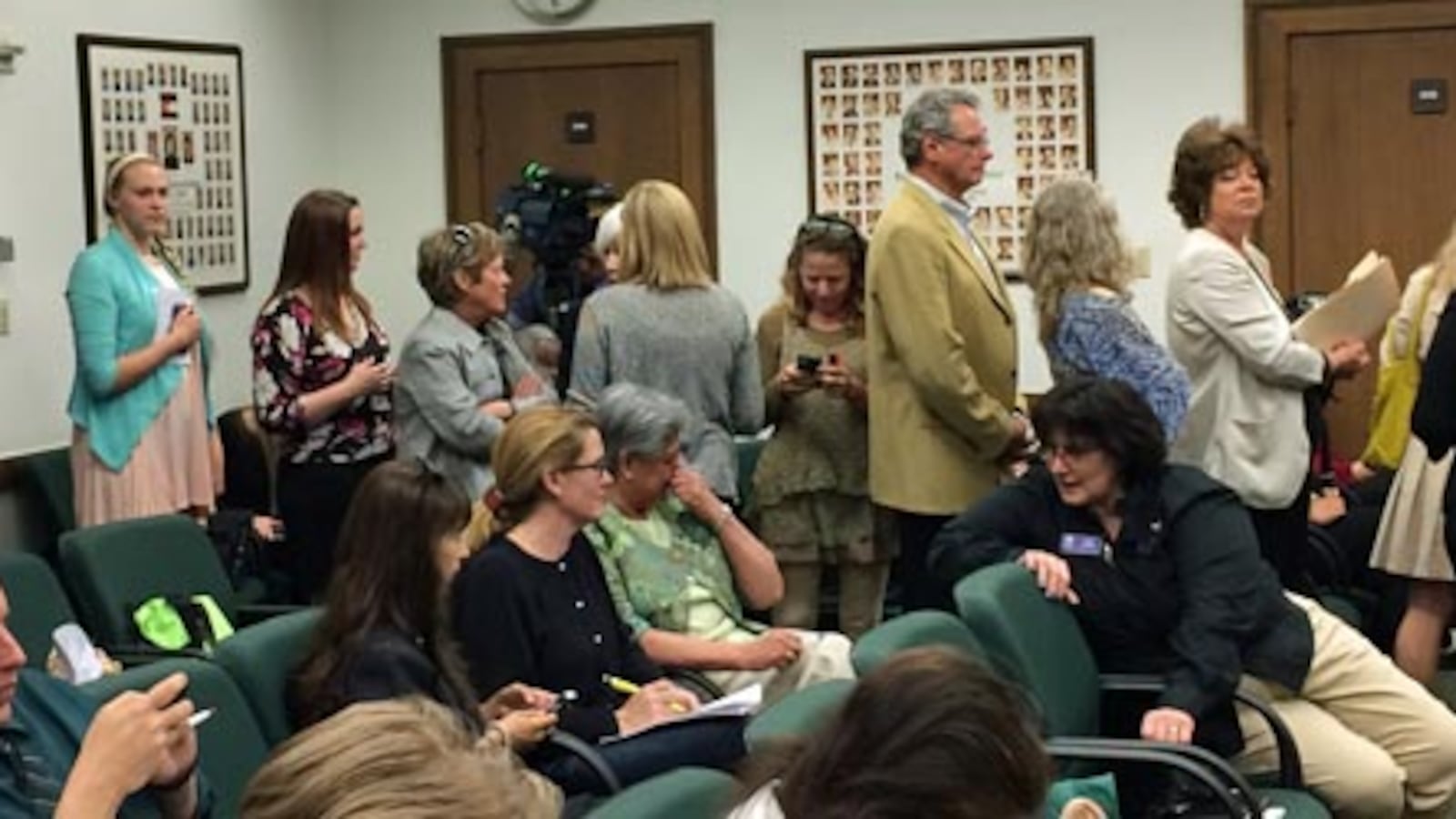The House Education Committee has approved a bill that would prohibit state colleges and universities from discriminating against applicants who earn high school diplomas from districts that have low ratings or aren’t accredited by the state.
The measure, House Bill 15-1326, is being pushed by lawmakers whose legislative districts include low-performing school districts that face state intervention, including loss of accreditation, in 2016. (Get background on the process in this story and in Chalkbeat’s accreditation timeline.)
This bill is one sign of the rising anxiety about the state’s five-year accountability clock. One of the proposed testing measures, House Bill 15-1323, would designate 2015-16 as “timeout” year for the clock.
Loss of district accreditation could affect college applicants’ “ability to apply for scholarships, get financial aid or even be admitted,” said prime sponsor Rep. Dominick Moreno, D-Commerce City. “To me this is an issue of fundamental fairness.”
Both Moreno and cosponsor Rep. Daneya Esgar, D-Pueblo, acknowledged that colleges don’t necessarily consider accreditation when reviewing applications. But Esgar said, “We’re putting this in as a safety net.”
Kiera Hatton, the mother of an 8th grader in the Pueblo 60 schools, supported the bill and said she’s moving her daughter to another district because of uncertainty about the district’s future accreditation. “We will have a lost generation of Pueblo kids, and we will have families leaving.”
Pueblo 60 is in Esgar’s district, and the Adams 14 district is in Moreno’s. Six other districts are in the same situation.
The bill applies only to state colleges and universities, not private colleges or out-of-state schools.
The bill passed to the House floor on a 9-2 vote.
House Ed runs out of time on other bills
The main act for Wednesday’s late-morning House Education session was supposed to be Senate Bill 15-173, the proposal to set security and privacy requirements for data vendors who work with school districts.
The bill left the Senate with some unresolved issues (see story), but the committee didn’t get to amendments or even finish public testimony. Because House floor work dragged on Wednesday, the committee didn’t get started until nearly 11:30 a.m. and had to vacate the hearing room by 1:30 p.m. for another committee.
Chair Rep. John Buckner, D-Aurora, delayed additional testimony until a special meeting sometime Friday. Buckner was startled when prime sponsor Rep. Dan Pabon, D-Denver, announced, “I actually won’t be in the state on Friday afternoon.”
Buckner said that means action on the bill won’t come until next week. “That would have been really great information for me to have this morning,” Buckner said sternly to Pabon about his absence.
The committee also had to delay consideration of House Bill 15-1339, which makes important changes in district financial transparency reporting, and House Bill 15-1273, which seeks to improve compilation and reporting of dangerous incidents at schools.
For the record
It’s the time of year when multiple education bills are on the move – or being killed – daily, so here’s a quick rundown of what else happened Wednesday. Also check the Education Bill Tracker for updates on other bills of interest to you.
American Indian mascots – The House gave 33-32 approval to House Bill 15-1165, which would require state approval for school use of American Indian mascots and logos. This measure has little or no chance in the Republican-controlled Senate (get background here).
Truancy – Senate Bill 15-184, a watered-down version of a measure originally intended to end jailing of truant students, passed the Senate 31-4 (get background here).
Teacher evaluations – The Senate Education Committee voted 9-0 to kill Senate Bill 15-003, which would have eliminated the use of student academic growth in teacher evaluations. The bill was largely a symbolic statement by Sen. Mike Merrifield, D-Colorado Springs – he joined the vote to kill the bill. More modest changes to teacher evaluation are contained in Senate Bill 15-257, of which Merrifield is a cosponsor.


